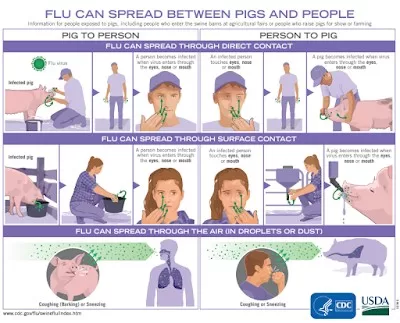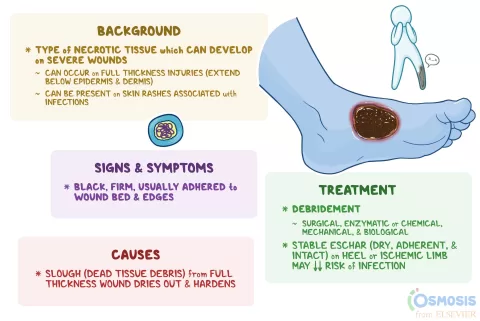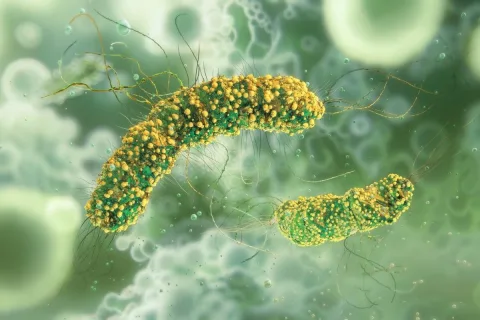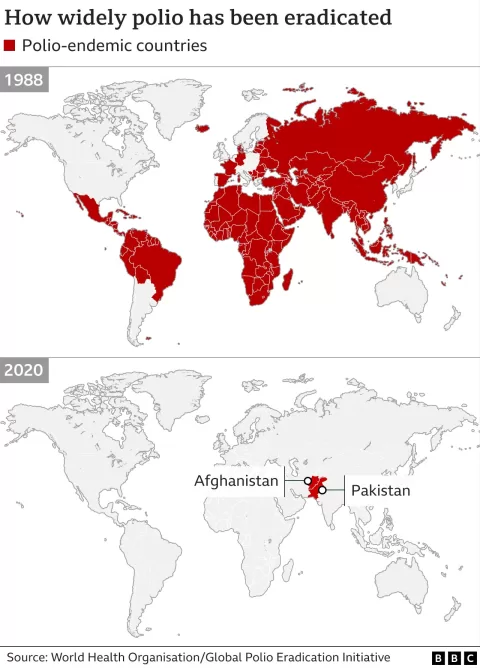A recent Salmonella outbreak involving cucumbers has raised significant concerns about food safety across the United States. The Centers for Disease Control and Prevention (CDC) has issued a Salmonella warning amid reports of 26 individuals across 15 states falling ill from Salmonella Montevideo infections linked to these vegetables. Notably, cucumbers from a Florida cucumber distributor, Bedner Growers, are at the center of this troubling food safety outbreak. Most of the infected individuals consumed whole cucumbers from various sources like grocery stores and restaurants, highlighting the cucumber health risks that can arise from contamination. As health officials continue to investigate, consumers are urged to be vigilant and discard any cucumbers of uncertain origin to protect themselves from potential illness.
The recent health crisis involving cucumbers infected with Salmonella has prompted health authorities to take action in response to growing illness reports. This multistate outbreak has been linked to whole cucumbers, with the CDC alerting the public about the related health hazards. With cases of Salmonella Montevideo resulting from contaminated produce, it underscores the challenges of food safety in the distribution networks, particularly from Florida-based distributors. People who have recently consumed cucumbers from unknown sources are being cautioned about the risks and encouraged to dispose of these vegetables. As investigations continue, awareness about the importance of food safety remains crucial for preventing further outbreaks.
Understanding the Recent Salmonella Outbreak Linked to Cucumbers
In recent weeks, the Centers for Disease Control and Prevention (CDC) and the Food and Drug Administration (FDA) have been investigating a serious multistate outbreak of Salmonella Montevideo linked to whole cucumbers. As reported, 26 individuals from 15 different states have become ill, with 9 requiring hospitalization—a clear indication of the potential severity of this foodborne illness. Public health officials emphasize the importance of awareness regarding this outbreak, especially given the connection to certain geographical areas where cucumbers were distributed.
Moreover, it appears that the outbreak may be more widespread than currently documented, as many individuals recover from Salmonella without needing medical treatment. The cluster of illnesses has raised concerns, particularly since 11 out of 13 affected individuals reported consuming cucumbers purchased from various outlets, such as grocery stores and restaurants. This relation emphasizes the urgent need for better food safety practices and consumer vigilance.
Food Safety and the Risks of Salmonella in Cucumbers
The recent Salmonella outbreak serves as a stark reminder of the health risks associated with consuming contaminated produce, particularly cucumbers. Food safety practices are paramount to prevent such outbreaks from occurring in the future. The CDC warns consumers to be aware of where their food originates, as proper handling and hygiene practices can significantly reduce the likelihood of contamination. Cucumbers, while typically a healthy snack, can pose health risks if they have been improperly handled or if they originate from contaminated sources.
This situation highlights the need for consumers to be proactive about food safety. Individuals are encouraged to wash all produce thoroughly and to stay informed about alerts regarding potential contamination. Awareness of foodborne illness outbreaks and understanding their implications can help consumers avoid risky foods. The CDC’s Salmonella warning regarding cucumbers is a critical takeaway for anyone who intends to purchase or consume fresh produce.
Role of Florida Growers in the Salmonella Outbreak Investigation
An important element of the ongoing investigation is the connection to Florida-based growers and distributors, particularly Bedner Growers and Fresh Start Produce Sales. Both entities have been identified as sources for the whole cucumbers tied to the current Salmonella outbreak. In addition to being implicated in this outbreak, Bedner Growers has a concerning history, having been associated with a previous outbreak that affected over 500 individuals. Such revelations prompt questions about the overall food safety measures in place within these farms and distributors.
The FDA’s thorough investigation and the environmental sampling conducted reveal the realities of how easily pathogens can transfer from farms to consumers. The meticulous traceback processes and laboratory confirmations underscore the critical need for stringent quality assurance in food production. Consumers should be vigilant and question the origins of their food products, especially fresh produce like cucumbers that are prone to microbial contamination.
Consumer Actions During a Salmonella Outbreak
In light of the Salmonella outbreak linked to cucumbers, it’s crucial for consumers to take specific actions to ensure their safety. The CDC has advised anyone who may have purchased whole cucumbers from implicated sources to discard them immediately. This precaution is primarily aimed at mitigating further health risks and preventing potential illness. It’s essential to check the source of any cucumbers in your possession, especially if they were bought from retailers during the specified outbreak window.
Additionally, informing others about potential contamination can help safeguard public health. Awareness is key—by sharing information on food safety and the ongoing outbreak, individuals can play a part in preventing the spread of illness. Engaging with food safety alerts through platforms like the CDC and FDA can keep you informed about the latest developments in foodborne illness investigations.
History of Salmonella Outbreaks and Food Safety
The ongoing Salmonella Montevideo outbreak linked to whole cucumbers is part of a larger pattern of food safety issues that have plagued the industry for years. History shows that contaminated fresh produce can lead to significant public health crises, with outbreaks impacting thousands of individuals across the country. Furthermore, previous strains of Salmonella, such as Salmonella Africana and Salmonella Braederup, have raised alarms, reinforcing the importance of stringent food safety measures and thorough inspections.
Understanding the history of these outbreaks aids in recognizing why food safety practices are so vital. The CDC and FDA outline guidelines for growers and distributors, emphasizing regular environmental testing and monitoring for contamination. However, it remains crucial for consumers to remain vigilant and engaged, advocating for transparency and high standards in food safety that protect public health.
Epidemiology of Salmonella Infections: Insights from the Outbreak
Epidemiological studies play a significant role in understanding the dynamics of Salmonella infections, particularly during outbreaks like the one linked to cucumbers. This outbreak has revealed valuable insights into how specific strains of Salmonella, like Salmonella Montevideo, spread among populations. Such investigations involve collecting data from affected individuals, identifying common patterns, and tracing the source of contamination, which is vital for controlling the outbreak effectively.
The information gleaned from interviewing individuals who fell ill, coupled with traceback investigations, serves to pinpoint specific sources and potentially contaminated products. The association of numerous illnesses with cucumbers signifies the need for comprehensive coverage in food health alerts to protect the public from similar outbreaks in the future. By analyzing these epidemiological factors, health authorities can adequately respond and implement measures to prevent further infections.
The Importance of Traceback Investigations in Foodborne Illnesses
Traceback investigations are an essential component of public health responses to foodborne illnesses. In the case of the Salmonella outbreak linked to cucumbers, thorough traceback efforts have allowed investigators to connect the ill individuals to specific growers and distributors. By determining where the contamination originated, public health officials can issue warnings and recalls, effectively protecting further consumers from potential illness.
These analyses highlight the intricate supply chains involved in food distribution and the challenges faced in ensuring food safety. Stronger traceback systems can lead to quicker public health interventions, minimizing the spread of illness. Such investigations also promote accountability within the food industry, urging producers and distributors to adhere to rigorous safety standards that ultimately protect consumer health.
Preventative Measures for Consumers: Staying Safe from Salmonella
Given the potential health risks associated with cucumbers, especially in light of the Salmonella outbreak, consumers must adopt preventative measures to safeguard their health. One of the key recommendations is to thoroughly wash cucumbers and other fresh produce before consumption—a practice that can help reduce the likelihood of ingesting harmful pathogens. Consumers should also be educated on proper storage techniques and the importance of buying perishables from reputable sources.
Awareness of food recalls and health advisories is equally important. Subscribing to alerts from food safety organizations, such as the CDC, can keep consumers informed about potential risks associated with the foods they consume. Taking these proactive steps can significantly mitigate the risk of foodborne illnesses, allowing individuals to enjoy healthy produce like cucumbers without fear of contamination.
Understanding the Health Impact of Salmonella Infections
Salmonella infections can have serious health implications, ranging from mild gastroenteritis to severe illness requiring hospitalization. The symptoms of Salmonella Montevideo infections typically include diarrhea, fever, and abdominal cramps, which can emerge within hours or days of consuming contaminated food. In vulnerable populations, such as the elderly or immunocompromised, these infections pose a higher risk, leading to longer-lasting health effects.
This underscores the critical importance of food safety measures and public health readiness to prevent such outbreaks. Education on the signs and symptoms of Salmonella is essential for early detection and treatment, providing timely medical attention to those affected. Enhanced awareness and preparedness can ultimately reduce the burden of foodborne illnesses on the healthcare system while protecting public health.
Frequently Asked Questions
What is the current CDC Salmonella warning related to cucumbers?
The CDC has issued a Salmonella warning regarding whole cucumbers linked to a multistate outbreak of Salmonella Montevideo. As of the latest update, 26 individuals across 15 states have reported illnesses related to this outbreak, and health officials are urging consumers to exercise caution.
How is the Salmonella Montevideo outbreak connected to cucumbers from Florida?
The Salmonella Montevideo outbreak has been traced back to whole cucumbers grown by Bedner Growers in Florida and distributed by Fresh Start Produce Sales. Investigations revealed that environmental samples from the grower tested positive for Salmonella, matching the strains found in affected individuals.
What are the cucumber health risks associated with the current Salmonella outbreak?
The cucumber health risks stem from consuming whole cucumbers contaminated with Salmonella Montevideo, which can cause serious gastrointestinal illness. Symptoms may include fever, diarrhea, and abdominal cramps, and nine individuals from this outbreak required hospitalization.
Which Florida cucumber distributor is implicated in the Salmonella outbreak?
Fresh Start Produce Sales, a distributor located in Florida, is implicated in the Salmonella outbreak linked to whole cucumbers. The distributor has been advised by the CDC and FDA to halt sales of the implicated cucumbers until the investigation concludes.
How can I protect myself from the food safety outbreak of Salmonella linked to cucumbers?
To protect yourself from the food safety outbreak of Salmonella linked to cucumbers, avoid consuming whole cucumbers purchased from stores or restaurants suspected of carrying those linked to Bedner Growers. If you have any whole cucumbers at home whose source you cannot verify, it is best to throw them out.
What should retailers do regarding whole cucumbers associated with the Salmonella outbreak?
Retailers who purchased whole cucumbers from Bedner Growers distributed by Fresh Start between April 29 and May 19 should refrain from selling these cucumbers and inform customers of the potential Salmonella health risks associated with them.
What symptoms should I look for if I think I’ve been affected by the Salmonella outbreak from cucumbers?
If you suspect you’ve been affected by the Salmonella outbreak from cucumbers, monitor for symptoms like fever, diarrhea, and abdominal cramps, which can develop 6 hours to 6 days after exposure. It’s important to seek medical attention if symptoms worsen or do not improve.
When did the illnesses related to the Salmonella outbreak from cucumbers start?
The illnesses linked to the Salmonella outbreak from cucumbers began between April 2 and April 28, 2024. The CDC indicates that the outbreak may be larger than reported, as many individuals recover without seeking medical treatment.
What should I do if I have cucumbers from the implicated distributor?
If you have whole cucumbers at home that were potentially distributed by Fresh Start and sourced from Bedner Growers, it is advised to throw them out immediately to prevent risk of Salmonella infection.
What ongoing investigations are related to the Salmonella outbreak linked to cucumbers?
Ongoing investigations by the CDC and FDA are focused on the source of the Salmonella outbreak, particularly concerning the Florida grower Bedner Growers and their distribution practices. This includes traceback investigations and environmental sampling to prevent future outbreaks.
| Key Point | Details |
|---|---|
| Outbreak Overview | A multistate Salmonella outbreak linked to whole cucumbers is being investigated by the CDC and FDA. |
| Illness Details | 26 reported cases across 15 states, with 9 hospitalizations due to Salmonella Montevideo. |
| Cruise Ship Connection | 7 affected individuals had recently taken a cruise ship departing from Florida. |
| Source of Cucumbers | Cucumbers traced back to Bedner Growers in Florida, distributed by Fresh Start Produce Sales. |
| FDA Findings | Environmental samples from Bedner Growers tested positive for Salmonella. |
| Consumer Advice | Consumers are advised to discard any cucumbers with unknown sources. |
| Previous Outbreaks | Bedner Growers was previously linked to a Salmonella outbreak in 2024 involving 551 cases. |
Summary
The Salmonella outbreak cucumbers have raised significant health concerns as investigations unfold. Authorities such as the CDC and FDA are closely monitoring the situation, with established connections to specific Floridian growers. With reported cases on the rise, it is crucial for consumers to heed warnings, especially regarding the disposal of potentially contaminated cucumbers. As health officials continue their investigation, the importance of public awareness regarding food safety cannot be overstated. Ensuring informed decisions can help mitigate the impact of this outbreak.
The content provided on this blog (e.g., symptom descriptions, health tips, or general advice) is for informational purposes only and is not a substitute for professional medical advice, diagnosis, or treatment. Always seek the guidance of your physician or other qualified healthcare provider with any questions you may have regarding a medical condition. Never disregard professional medical advice or delay seeking it because of something you have read on this website. If you believe you may have a medical emergency, call your doctor or emergency services immediately. Reliance on any information provided by this blog is solely at your own risk.








